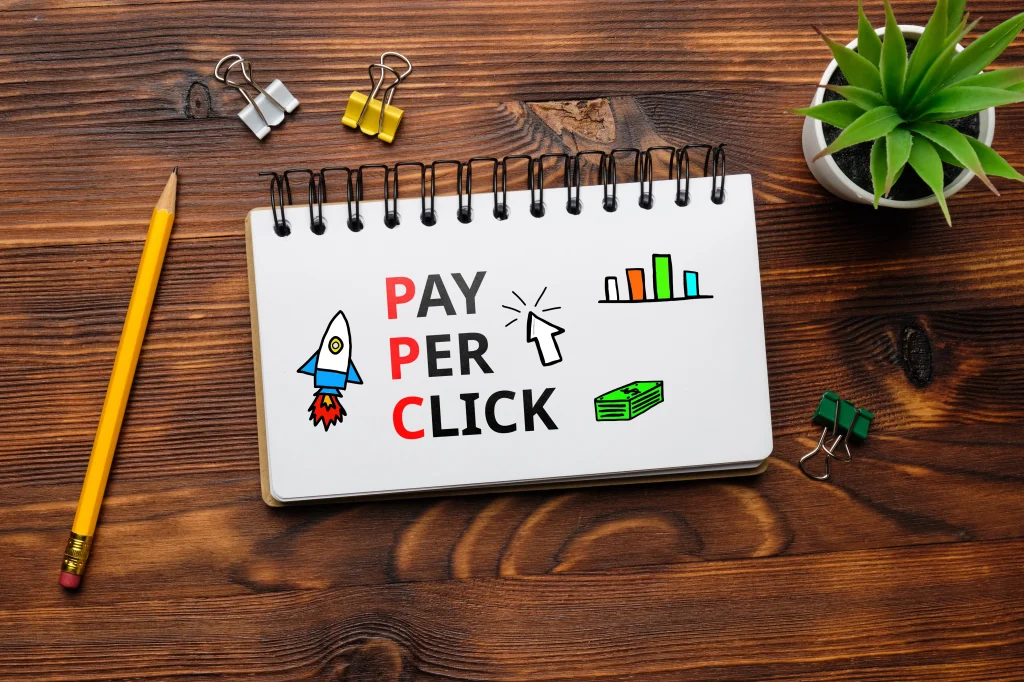The Advantages of PPC Advertising
Now that we have a clearer understanding of PPC, let’s explore its benefits.
- Immediate and Consistent Results
PPC offers a significant advantage over marketing strategies like Search Engine Optimization in that it can provide immediate results for marketers as soon as their ads are launched.
This underscores the importance of PPC for businesses aiming to swiftly generate revenue or promote short-term offers. Setting up search ads on Google via its platform portal allows for immediate visibility on search engine results pages, leading to rapid conversion opportunities. However, managing a PPC campaign requires ongoing optimization to align with objectives, monitor performance, and make necessary adjustments in real-time for optimal outcomes.Similar to other digital marketing strategies, it’s crucial to prioritize tracking metrics and analyzing data to ensure efficient budget utilization and the attraction of relevant prospects to your website.
- Boosted Income
Certainly, no digital marketing strategy would be endorsed if it didn’t aid in the buyer’s journey and drive revenue growth. Let’s explore how PPC can indeed accomplish these objectives. PPC directly impacts key performance indicators (KPIs) and contributes to revenue generation, all of which can be quantified.
As mentioned earlier, PPC delivers rapid results, making it a dependable revenue stream. According to Google statistics, businesses typically earn $2 in revenue for every $1 spent on Google ads (PPC), resulting in a 2:1 return on investment.
Moreover, many PPC platforms include built-in KPIs, allowing you to tailor your campaigns to specific objectives.
-
Manage Your Budget
PPC stands out to marketers due to its emphasis on budget control, offering a higher level of financial oversight compared to other paid marketing strategies. Through PPC, marketers can actively manage their budget allocation in real-time.
A key advantage, as highlighted throughout this article, is that PPC charges only for clicks, not views. This ensures payment is made solely for relevant traffic and high-quality prospects. Both social media and search PPC campaigns allow for a structured approach, organized into account, campaign, ad group, ads, and keyword or audience. This hierarchical setup grants direct control over budget allocation, enabling adjustments based on demographics, location, or queries that align with campaign objectives.
-
Highly Targeted
The command over your ad budget extends to other crucial metrics like audience targeting. Targeting the right audience is pivotal for sales success, and PPC is tailored to reach specific audiences. As mentioned earlier, PPC empowers you to control the placement, timing, and audience targeting of your ads. This level of control enables you to align your advertising efforts with your objectives and key performance indicators, ultimately enhancing your profitability and delivering a favorable return on investment.
-
Enhanced Conversion Rates
Based on research from Formstack, PPC ads rank among the top three digital marketing tactics for on-page conversions. Additionally, data from Unbound reveals that visitors arriving at a retailer’s website via PPC ads are 50% more likely to convert into sales compared to those landing through organic links.
PPC positions ads prominently at the top of search engine results, with 40% of online users clicking on the top three paid ads before exploring other links. This rapid delivery of results makes PPC particularly effective for businesses running short-term promotions, events, and seasonal specials.
In conclusion
PPC marketing remains a steadfast and effective strategy for driving quick conversions, ensuring its relevance in the digital marketing landscape. Our experienced team of marketers is equipped to optimize your digital marketing endeavors, delivering tangible outcomes and maximizing your return on investment. Whether you’re delving into Pay-Per-Click marketing, exploring Inbound marketing techniques, or venturing into other avenues, REACT is your comprehensive solution provider.


